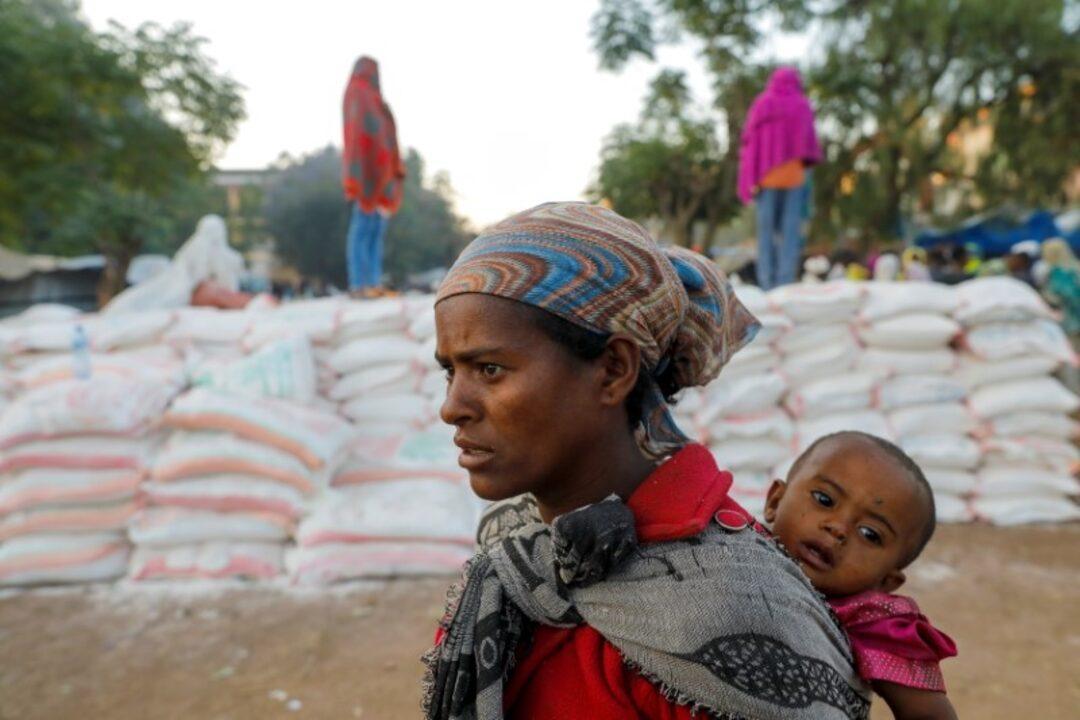Africa-Press – Ethiopia. Addis Abeba – A new report by the United Nations Office for the Coordination of Humanitarian Affairs (UNOCHA) revealed an estimated 500,000 displaced people currently sheltered in various camps in the Amhara region are facing “acute shortages of food, shelter, water, sanitation, healthcare, and protection services.”
Most of the displaced, nearly 90%, are residing within host communities, while the remainder have sought refuge in makeshift camps, chief among them Debre Berhan and Jara, which are now hosting around 22,000 and 10,000 people respectively.
Citing the Amhara Disaster Prevention and Food Security Commission, the UN said that the displacement crisis is rooted in multiple layers of conflict, including spillover violence from the western Oromia region.
Since 2021, over 88,000 civilians have been forcibly displaced from western Oromia alone, the UN says. Many of these individuals now live in collective shelters across three camps in Debre Berhan (China camp), Woinshet, and Bakelo, where basic necessities are in severe shortage.
In October 2024, Addis Standard reported that more than 714 households in the Bakelo IDP camp in Debre-Berhan city, Amhara region, are struggling as food aid and humanitarian assistance have been abruptly halted.
Internally Displaced People (IDPs) and local officials who spoke with Addis Standard as early as March 2023 have warned that thousandsof IDPs sheltered in Debre Berhan city, who were displaced from their neighborhoods in West Shewa, East, and West Wollega zones of Oromia regional state, were facing severe and chronic food, shelter, and other humanitarian shortages, according to the official.
“Food distributions are irregular and insufficient,” the UN said in its latest report, and newly arrived IDPs are frequently excluded due to lack of registration. The living conditions are described as “substandard and deteriorating,” particularly in China camp, where 900 IDPs have been confined to a single warehouse for over three years.
Humanitarian actors are alarmed by the critical WASH situation and a severe lack of non-food items (NFIs) like blankets, mattresses, and kitchen utensils, many of which have not been distributed in over two years.
In June, Addis Standard reported first-hand accounts from displaced persons in Bakelo and Jara centers, revealing the worsening humanitarian situation. One resident at Bakelo, who spoke anonymously due to security concerns, said food aid arrives “every two months at best,” and sometimes only after four months. The aid, typically 15 kilograms of flour per person, falls far short of needs. “We sleep by spreading tarpaulins,” he said. “Pregnant women and children are suffering… Instead of someone calling to ask how we are, what would help is someone coming with even one kilogram of flour.”
At the Jara IDP center in North Wollo, another displaced individual shared similarly bleak conditions. Receiving “15 kilograms of maize, 1.5 kilograms of peas, and 0.45 liters of oil per month,” he said it was insufficient to cover both food and essential living costs. Having fled Kiremu district in East Wollega in 2022, he lamented, “The aid is not enough, and we don’t have any means of income.”
The government’s attempt to facilitate returns in late 2023 has also faltered. Though 2,800 individuals were relocated from Amhara back to areas in West Shewa, East Wollega, and West Wollega, many found themselves unable to return to their homes and eventually made their way back to the camps in Debre Berhan.
A previous Addis Standard report in April this year highlighted the appalling state of shelters in five IDP sites, Jara, Jari 1, Jari 2, Mekaneyesus, and Gerba Degan, where almost 15,000 IDPs are crammed into communal or damaged structures, lacking privacy, safety, and accommodations for people with disabilities. The Emergency Shelter & NFI Cluster, responsible for coordinating humanitarian shelter support, noted that “last full distributions occurred in 2022,” and subsequent aid has been “scarce and inconsistent.”
As the displacement crisis drags on with no durable solution in sight, the UN warns that the “protracted nature of displacement” is placing unbearable pressure on underfunded humanitarian organizations already stretched beyond capacity. Urgent, sustained support is needed to avert further deterioration of conditions and prevent a deeper humanitarian disaster across the Amhara region. AS
For More News And Analysis About Ethiopia Follow Africa-Press






